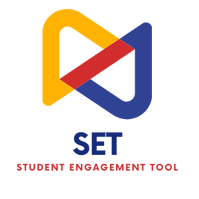
U-TTEC Lab Research
Distance Education & Online Pedagogy
-
Utilizing an Equitable Multi-tiered Tele-Outreach Framework to Provide a Mental and Behavioral Health Advanced Placement Course to Native American High School Students in San Juan, Utah.
This project is a novel and systematic multi-tiered approach to service delivery and applied experiences. It will utilize a tele-outreach strategy to REL recruit students from San Juan, Utah into psychology majors. There is an immense need to address the mental health workforce and stigma in San Juan. The proposed project will also provide participants with training in mental and behavioral health as a bridge to a career in the mental health workforce.
-
The U-TTEC GApp Lab project is a virtual reality training tool that has been developed in a collaborative partnership with the University of Utah’s Therapeutic Games and Apps Lab and the University of Connecticut’s Bray Lab. Using advanced technologies to develop a simulated learning environment for preservice educators, participants are immersed in an interactive classroom setting with real student behavior and challenging everyday scenarios. Individuals will be enabled to practice skills related to classroom management utilizing techniques such as behavior specific praise. Beyond that, this tool will incorporate self-care strategies that can be used in daily personal practice or integrated into daily classroom activity. Consequently, this will provide an opportunity for learners to enhance their competencies, foster confidence, and increase proficiency prior to engaging in a live teaching environment.
-
The delivery of Behavioral Skills Training (BST) through simulated virtual reality can be utilized for consultation and shows promise in aiding teachers in learning training techniques. Virtual Reality (VR) training methods for BST remain in the early stages of advancement and evaluation. Therefore, the NEXUS study aims to evaluate pre-teachers' acceptability of learning BST through simulated environments. The study was designed to understand how teacher-trainers design BST programs to build a theoretical framework for creating artificial intelligence (AI)-powered tools for teachers to use in virtual classrooms.
-
This grant funded project involves developing and evaluating the efficacy of an augmentative online teaching software to improve student engagement during Zoom classes. Teachers will receive summative feedback regarding student engagement from the software and use that feedback to modify their engagement strategies for students who are less engaged. If found to be effective, the procedures investigated may provide a model for addressing online student engagement during Zoom (or similar software) classes.


